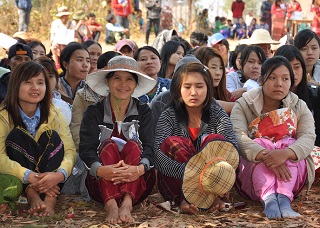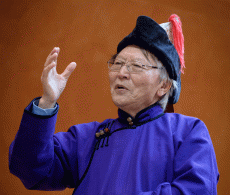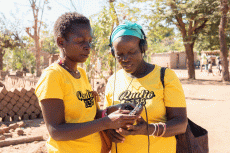Myanmar nach den historischen Wahlen 2015
Gepostet am 22. Feb. 2016 in Aktuelles | Keine Kommentare Workshop und Diskussion
Workshop und Diskussion
Donnerstag, 25. Februar 2016, Konferenzsprache: Englisch (mit der Gründerin der Burmahilfe Gabriele Schaumberger, siehe www.solidarische-abenteuer.at)
MYANMAR AFTER THE HISTORIC ELECTIONS OF 2015: RE-DISTRIBUTING POWER? RE-NEGOTIATING REFORMS?
Panel Discussion and Workshop
The general elections of November 2015 have been a major turning point in Myanmar´s history: The first free and fair elections after decades of military rule are a pivotal point in the country’s reform process which was started in 2010 and which has brought about a massive political, economical and social change ever since. After the clear success of Aung San Suu Kyi and her National League for Democracy (NLD), the balance of power in the new parliament has shifted towards civil forces. The declaration of the military party that they will respect the results of the elections and the recent self-restraint of the NLD to abstain from the winner takes it all-attitudes are promising news. After the first convention of the new parliament on 1st February, the election of a new president and the formation of a new government will be crucial stepping stones for the new distribution of power. However, Myanmar’s political institutions are still very young and the process of handing over the political power from the military dominated government to a civil administration will be delicate.
The panel and workshop will bring together experts and researchers from Myanmar and Austria who will address the process from different perspectives.
Dr. Khin Zaw Win is Director of the Non-Governmental Organisation “Tampadipa Institute”. He is a former political prisoner and one of the leading analysts of Myanmar politics. He has been active in numerous capacity building activities for MPs in the old parliament. In his contribution, he will focus on the role of ethnic parties and politics in the new balance of power.
Dr. Sai Khaing Myo Tun has been teaching International Relations at Yangon University and Monywa University. Currently he is working as Guest Professor at the Department of Development Studies at the University of Vienna, funded by the Austrian Development Agency (ADA). He is also a labour activist and representative of one national labour organisation. In his contribution, he will focus on the reforms of the higher education system and on labour issues.
Dr. Wolfram Schaffar, Professor for Political Science and Development Studies, University of Vienna
Gabriele Schaumberger, founder of the Austrian NGO Burmahilfe
Christiane Voßemer, PhD candidate at the Department of Development Studies, University of Vienna
Rainer Einzenberger, PhD candidate at the Department of Development Studies, University of Vienna
Ines Höckner, Student Assistant at the Department of Development Studies, University of Vienna
When: Thursday, 25. 02. 2016, 11.00-16.00 Where: Alois-Wagner-Saal (C3), Sensengasse 3, 1090 Vienna
We kindly ask participants to register for the panel until 23.02.2016 at: ines.hoeckner(at)univie.ac.at
PROGRAMME
11.00h-13.00h – Panel discussion
MYANMAR AFTER THE HISTORIC ELECTIONS OF 2015: MAJOR TRENDS AND ISSUES SINCE NOVEMBER 2015,
with Dr. Khin Zaw Win (Political Analyst, Tampadipa Institute) and Dr. Sai Khaing Myo Tun (University of Vienna and University of Monywa). The panel will be chaired by Ines Höckner.
13.00h-14.00h – Lunch Reception
14.00h-16.00h – Workshop on the post-election processes
RE-DISTRIBUTING POWER? RE-NEGOTIATING REFORMS?
with Gabriele Schaumberger (Burmahilfe), Christiane Voßemer, Rainer Einzenberger, Dr. Wolfram Schaffar (Department of Development Studies, University of Vienna)




